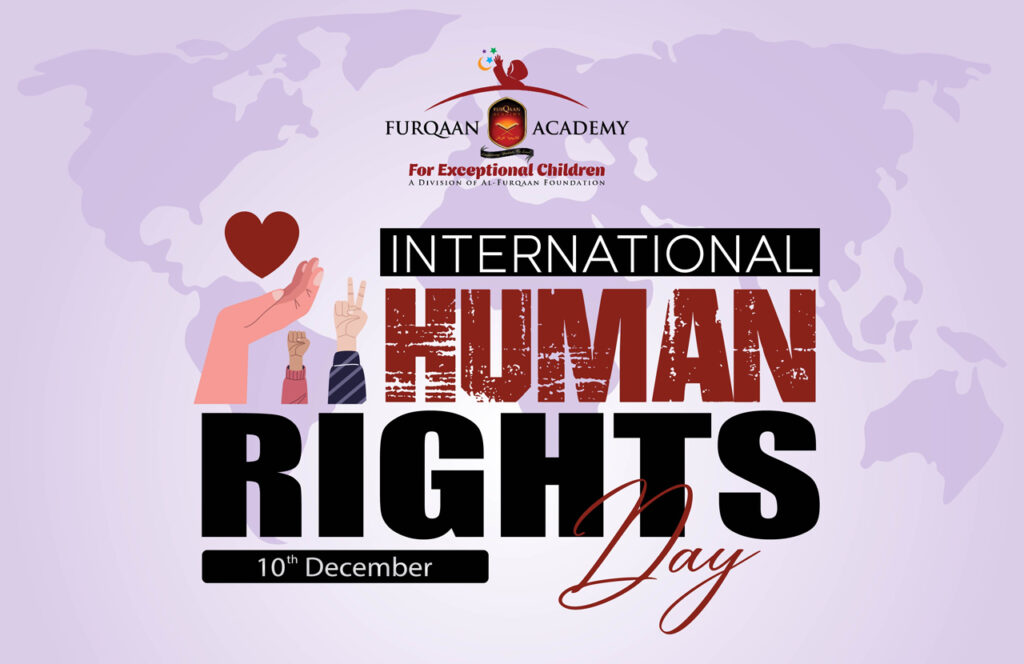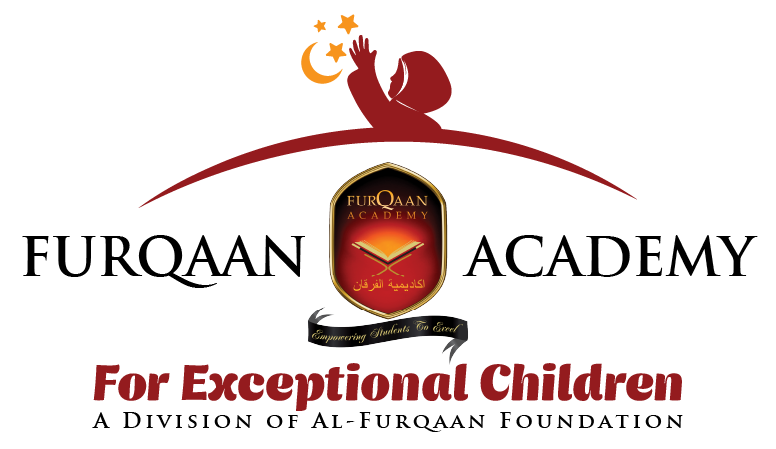
Since the time we were born, many of us have heard of heartbreaking stories of innocent people, especially Muslims, losing their lives around the world due to severe waves of injustice, and in ways that are unimaginable. In the past year alone, we have seen beautiful school buildings reduced to rubble, communities that have become torn apart by devastating wars, and healthcare resources quickly vanishing in places that are needed the most. This may seem like a nightmare for those of us who have been blessed with comfortable lives, but for others, this is their reality. For years, many communities globally have had to fight long battles for basic fundamental rights like healthcare, education, freedom of religion, and more. As a result, every year on Dec. 10th, people come together to celebrate the implementation of the UN’s Universal Declaration of Human Rights (UDHR) IN 1948. This declaration ensures that the basic rights of all people, regardless of their race, creed or background will be protected.
However, as Muslims, we are blessed to be part of a religion that reminds us each day of the values of justice, equality, and compassion that are the core tenets of our faith. Our Quran and the Sunnah of the Prophet Muhammad (SAW) emphasize the dignity of every human being, and teach us to stand united with the oppressed against the oppressors. Allah (SWT) says in the Quran, “…whoever takes a life—unless as a punishment for murder or mischief in the land—it will be as if they killed all of humanity; and whoever saves a life, it will be as if they saved all of humanity (The Clear Quran®, 5:32).”
On International Human Rights Day, let’s use this time and space to reflect on how we can implement these principles into our own homes, and into the lives of our children to ensure a future that is more kind, compassionate, and just.
“As educators, we hold an unwavering belief that respect for and practice of human rights must be instilled in all children from a very young age. Not only do human rights align with Islamic principles, but they also drive empathy, fairness, and inclusivity, promoting a healthier environment where children feel safe and respected,” said Samiya Zamani, the Deputy Executive Director of Furqaan Academy for Exceptional Children (FAEC). “This will, inevitably, lead to more confident adults who are comfortable with their identities as they navigate a dynamic world.”
What Does Islam Teach Us About Human Rights?
Over 1,400 years ago, Allah (SWT) revealed the Quran to His beloved Prophet Muhammad (SAW) that held the answers to life’s most difficult questions, and contained the best lessons for individuals to implement within themselves and society in order to flourish in a way that makes Him happy. Here are just a few verses, among the several that are mentioned in the Quran, where Allah (SWT) teaches the Prophet (SAW) on the importance of protecting and respecting human life:
- “Do not take a human life—made sacred by Allah—except with legal right (The Clear Quran®, 6:151).”
- “O believers! Stand firm for Allah and bear true testimony. Do not let the hatred of a people lead you to injustice. Be just! That is closer to righteousness. And be mindful of Allah. Surely Allah is All-Aware of what you do (The Clear Quran®, 5:8).”
- “It is not appropriate for someone who Allah has blessed with the Scripture, wisdom, and prophethood to say to people, ‘Worship me instead of Allah.’ Rather, he would say, ‘Be devoted to the worship of your Lord alone—by virtue of what you read in the Scripture and what you teach (The Clear Quran®, 3:79).’”
In his last sermon, the Prophet (SAW) has said, “All mankind is from Adam and Eve, an Arab has no superiority over a non-Arab nor a non-Arab has any superiority over an Arab; also a white has no superiority over black nor a black has any superiority over white.”
In addition to this, Islam has always taught us the importance of caring for the orphans, providing for those who are less fortunate, and to be patient/empathetic towards those who have any sort of a disability.
How to Teach Our Children the Importance of Human Rights:
In the early ages of a child’s life, one of the first characteristics that parents teach their children is kindness because Allah (SWT) values good akhlaaq towards His Creations.
“It is important for parents to instill compassion and kindness in children. This is a fundamental aspect of their moral and spiritual growth within Islam. Children are keen observers and often emulate the behavior of their parents,” said Ruby Ramirez, principal of FAEC. “Therefore, parents should lead by example, demonstrating empathy in their daily interactions. Encourage your child to engage in small acts of kindness, reminding them that smiling is a Sunnah. Promote the sharing of toys and food with friends and neighbors, and consistently use positive reinforcement to reward these acts, thereby strengthening their compassionate behavior.”
Ramirez further encourages parents to dedicate time on weekends to participate as a family in charitable activities like distributing food or volunteering to help others. “This not only fosters a sense of community service but also introduces them to the concept of sadaqah (voluntary charity), emphasizing its importance in their lives,” Ramirez said.
Here are some additional ways you can teach your child(ren) about the importance of human rights starting today:
- Teach through the stories of the Prophet (SAW): At least once a day, share stories from the Quran and the life of Prophet Muhammad (SAW) that show the importance of justice and equality. A powerful story is one of the Prophet (SAW) and his beloved companion, Bilal ibn Rabah. He was an African companion of the Prophet (SAW), and Allah (SWT)’s Messenger broke all social and racial barriers when he appointed Bilal as the mu’ezzin. Bilal is also known as the first convert to Islam.
- Encourage/practice empathy: Always encourage your child to see the world from the lenses of others. For example, if you are speaking to your child about a current event, ask them what they would do if they were in the shoes of those facing trials and tribulations?
- Promote acts of service: The best way to teach children about the importance of human rights is to get them involved in community projects and volunteering opportunities that allow them to be a part of the positive change in the lives of others. For example, encouraging them to give to charity, or packaging resources in a community center will soften their hearts and encourage empathy.
- Stand against bullying: In the age of social media, we see that more and more children are becoming victims of bullying. Always teach your child to treat other peers with respect and kindness, no matter what the differences may be. Also, encourage them to speak up if no one else is speaking up for a classmate that is being bullied.
- Celebrate diversity: Allah (SWT) has emphasized in the Quran that He has made people from different cultures, languages, and backgrounds, and indeed this is a sign of His greatness. Encourage them to embrace these differences rather than to fear them.
Furqaan Academy for Exceptional Children’s Commitment to Equality, Kindness, and Education for All
At FAEC, we understand the importance of nurturing each child’s unique potential. International Human Rights Day is a great time to reflect on the rights of children, which include the right to proper education, safety, and love. These rights align closely with Islamic principles and are essential for helping children grow into confident and compassionate adults.
“On International Human Rights Day, we reaffirm our commitment to dignity, rights, and freedom for all. This year’s theme, ‘Change Begins With Us – Understanding Disabilities,’ reminds us to break down barriers, challenge stigma, and create inclusive communities where everyone can thrive. Understanding disabilities and promoting inclusion isn’t just kindness—it’s our shared responsibility to uphold human rights,” emphasized Ramirez.
Within FAEC’s institution, here is how we support the rights of children and their education:
- Providing a loving and safe classroom environment
- Advocating for the fair treatment of children with any type of learning disability
- Ensuring children have access to education that is catered to their specific medical needs to ensure enrichment in both their religious and academic journeys
“At Furqaan Academy for Exceptional Children, we integrate specialized general education with Islamic values, offering a compassionate, inclusive environment where students receive academic support rooted in Islamic principles!” Zamani emphasized. “As the FIRST Islamic School for Special Needs Children, we are creating an opportunity for our Muslim students to connect with and practice Islamic teachings, engage with other Muslim children, cultivating a strong sense of belonging. Our students will not only receive personalized academic support but will also develop a strong Islamic identity!”
On this International Human Rights Day, we must remember that justice and change can only be brought into society when the efforts begin with us. When we live by the principles of Islam, and deeply ingrain its excellent teachings within ourselves and our children, we can be the community that changes the world to live with more empathy and dignity. At our school, we are so blessed to work alongside parents who share the same mission and vision to build an environment where every child is able to thrive. May Allah (SWT) grant us all with the strength, opportunities, and abilities to be ambassadors of justice, mercy, and equality.
We conclude this article with a powerful dua from the Prophet (SAW) where he says, “O Allah, You are the sustainer of the heavens and the earth, and whatever is in them. You are the One who establishes justice between Your servants in that which they dispute. Guide me, by Your leave, in that which is disputed of the truth, for You guide whomsoever You will to the straight path (Sahih Muslim).”
